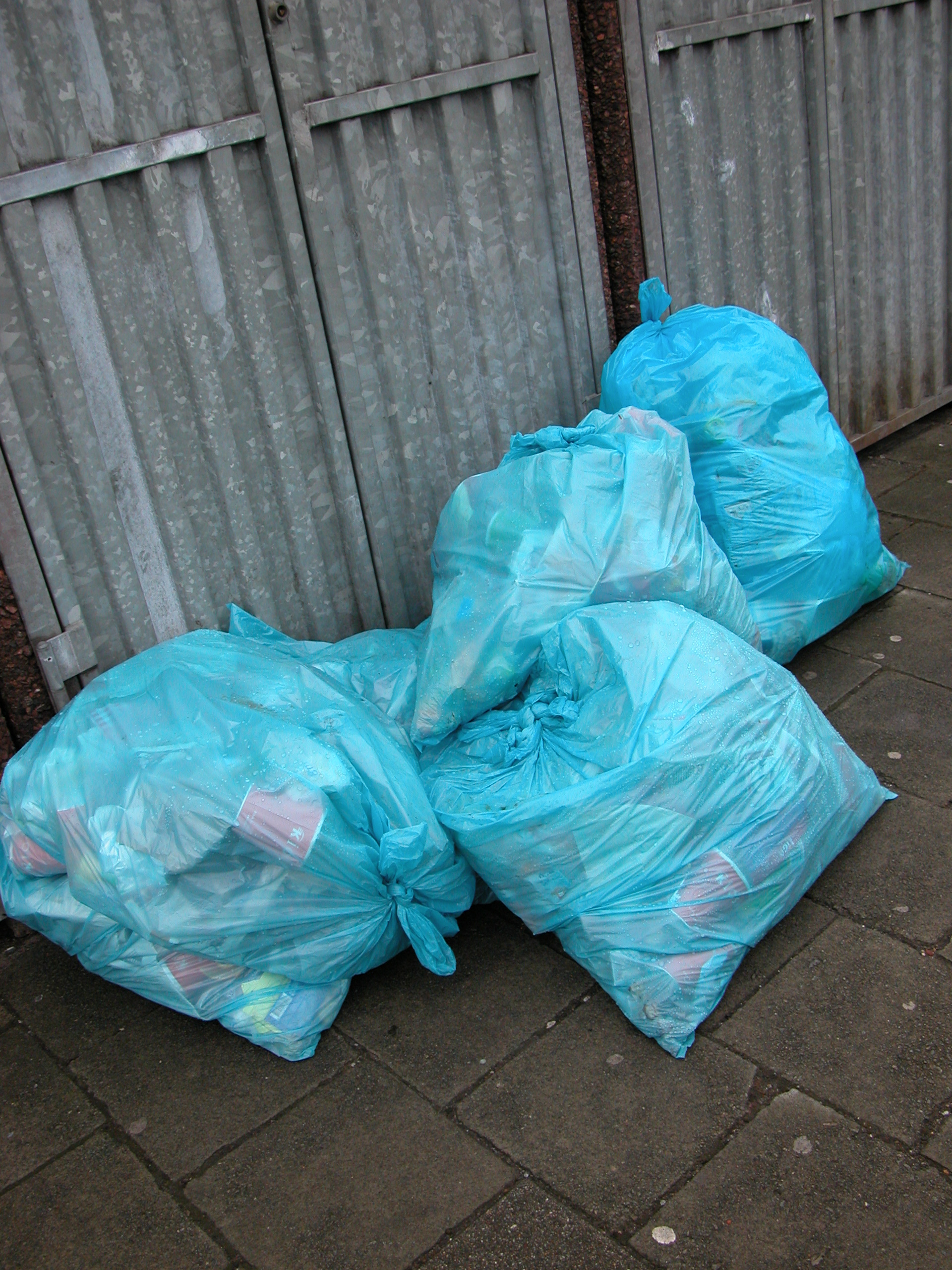
Thriving in suburbia relies so much on forgetting.
This time it's the plastic wrapper from one of those grocery store bricks of cheese. I'm throwing it out--a gesture so commonplace that it's almost thoughtless, even from people who try to be thoughtful, who compost their kitchen waste and separate their plastic and glass and newspapers for recycling. Sure, these habits have made a noticeable difference in the amount of garbage we generate. But living as a part of modern culture means that even if you're somewhat environmentally conscious, you're still producing a steady and inevitable dribble of trash.
So here it is, a piece of single-use food-grade colored plastic wrap crumpled in my hand. And I'm thinking about it, if only for a moment or two on my way to the white waste bin in the corner of the kitchen, and then I've dropped it through the flip lid and it's gone and I don't have to think about it anymore. It's simply gone from thought. Once the bin fills up in the next dew days, attention again must be paid for a bit--but only to a bland white bag that, conveyed outside to a larger bin (which in turn is conveyed once a week to the curb and into an even larger bin on wheels), is once again removed from thought.
The forgetting of the trash we make--or the allowance of forgetting--seems essential to the suburban ideal. We're allowed to separate our garbage from ourselves, for a small fee. If we start thinking about this process, the whole mirage is called into question--where this stuff comes from, where it's going, what it's purpose is, what it's impact must be, the sheer massive waste of it all. I'm reminded of those cornucopic photos displaying the weekly food consumption for a typical modern family, the bags of Doritos and Oreos, the magnums of soda dominating the perfunctory plates of apples and tomatoes and broccoli. On the back side of this, what would a year's worth of trash look like for one family?
I once lived with a guy who produced so much trash that I was convinced for a while that he was doing it with pride or on purpose, looking to see how fast a garbage can might be filled with Taco Bell bags and styrofoam containers.
I've considered this project: Collecting my not-easily-degradable waste for a year, organizing it in neat piles in the basement, squatting for a photo between hills of cardboard and plastic packaging and containers and cheaply made products fulfilling their fates of planned obsolescence. Surrounded by stacks of uselessness, by single-function creations now past their sole reason for being.
Two thousand years ago, a glass jar might be a treasure, a sign of wealth, used only for celebrated occasion and the honored guest. Now it's just something that holds something else, once. Then it's pretty much garbage. Now that gas is $4+ a gallon, fuel costs are on everyone's radar, but the conversation doesn't go much further than the bummer it all is on one's wallet. Peak energy writers like Richard Heinberg show a much darker picture of what lies ahead: a whole civilization built on cheap oil--to make stuff like one-use glass jars (which are certainly on the innocuous end of the industrial detritus spectrum)--quickly downshifting with much grinding of gears and whiplash.
Arguably, what I'm labeling as the "forgetting" central to this kind of consumption and trash-producing might just be called simple ignorance, or apathy, or laziness. People don't know, don't care, and can't be bothered. I think it's more, though. I get to stop worrying when I turn away from the garbage can. I can practice the indulgence of making myself simply forget. In this sense I'm both puppetmaster and puppet, my own manipulator, trained by the culture that it's okay to toss garbage sans thought, and in fact that thinking too much about the notion is weird, or impolite, or un-American, or dangerous. To forget about trash is to swim with the mainstream, to be stroked by normalcy, to live in the bubble. In such a common and culturally sanctioned activity we get to ignore consequence, ramification, guilt. This runs counter to so much common morality--the kind of maxims we purportedly grow up learning--that it's shocking to consider.
Derrick Jensen says that living in this culture requires that we all be a little insane, some more so than others. This might seem extreme, but there it is right in front of me, when I toss something else out. It's there one second, gone the next.
It's magical thinking. Or crazy thinking. Or stupid thinking.
Or suburban thinking.
No comments:
Post a Comment